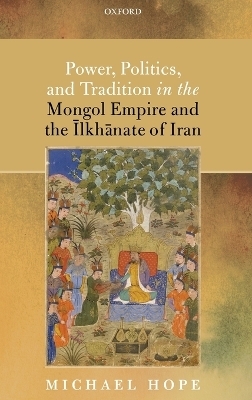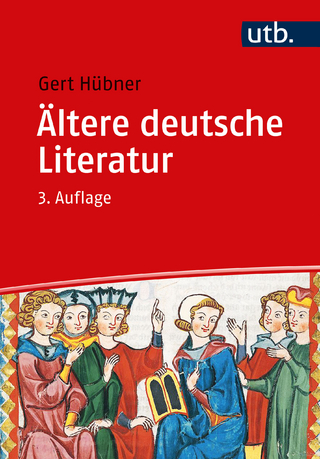
Power, Politics, and Tradition in the Mongol Empire and the Īlkhānate of Iran
Oxford University Press (Verlag)
978-0-19-876859-3 (ISBN)
This study provides a new interpretation of how political authority was conceived and transmitted in the Early Mongol Empire (1227-1259) and its successor state in the Middle East, the Īlkhānate (1258-1335). Authority within the Mongol Empire was intimately tied to the character of its founder, Chinggis Khan, whose reign served as an idealized model for the exercise of legitimate authority amongst his political successors.
Yet Chinggis Khan's legacy was interpreted differently by the various factions within his army. In the years after his death, two distinct political traditions emerged within the Mongol Empire, the collegial and the patrimonialist. Each of these streams represented the economic and political interests of different groups within the Mongol Empire, respectively, the military aristocracy and the central government. The supporters of both streams claimed to adhere to the ideal of Chinggisid rule, but their different statuses within the Mongol community led them to hold divergent views of what constituted legitimate political authority.
Michael Hope's study details the origin of, and the differences between, these two streams of tradition; analyzing the role that these streams played in the political development of the Mongol Empire and the Īlkhānate; and assessing the role that ideological tension between the two streams played in the events leading up to the division of the Īlkhānate. Hope demonstrates that the policy and identity of both the Early Mongol Empire and the Īlkhānate were defined by the conflict between these competing streams of Chinggisid authority.
Michael Hope is Assistant Professor of Asian History at Yonsei University. His research focuses on the political and social history of Central Asia and Iran. Hope spent two years living and working in Iran before completed his doctoral studies at the Australian National University. He now teaches courses in Mongol, Islamic, and Central Asian History at Underwood International College, Yonsei University. His current research includes the role of revenge and feuding in the Mongol Empire and the Islamization of the Mongols in Iran during the thirteenth century.
1: Introduction
2: The Problem of Succession (1227-1259)
3: Hülegü and the =Ilkh=anate
4: The Patrimonialist Revival and the Fight for Political Primacy (1284-1304)
5: Amirate or Sultanate: The Chinggisid
6: Conclusion
Bibliography
| Erscheinungsdatum | 07.10.2016 |
|---|---|
| Zusatzinfo | 7 black and white figures/illustrations |
| Verlagsort | Oxford |
| Sprache | englisch |
| Maße | 156 x 243 mm |
| Gewicht | 494 g |
| Themenwelt | Geschichte ► Allgemeine Geschichte ► Mittelalter |
| Geisteswissenschaften ► Geschichte ► Regional- / Ländergeschichte | |
| Geschichte ► Teilgebiete der Geschichte ► Wirtschaftsgeschichte | |
| Sozialwissenschaften ► Politik / Verwaltung ► Staat / Verwaltung | |
| ISBN-10 | 0-19-876859-1 / 0198768591 |
| ISBN-13 | 978-0-19-876859-3 / 9780198768593 |
| Zustand | Neuware |
| Haben Sie eine Frage zum Produkt? |
aus dem Bereich


